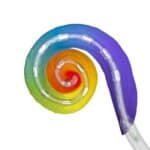The Top Music Training Apps For Cochlear Implant Users

Are you looking to develop your music perception with your hearing implant? Whether you have just received an implant or you’ve had it for a while, these music training apps are sure to help you on your journey. As a CI recipient, a musician, and a musicologist at MED-EL, Johanna has the perfect personal insights to share these awesome tips with you.
Hi there! My name’s Johanna, and I’m MED-EL’s in-house Musicologist. I am a musicologist, singer, and am also a cochlear implant user for over 9 years.
Previously, we shared the story of bilateral CI recipient Mary Beth, and how she can now enjoy music with her cochlear implants. I worked with many CI users like Mary Beth over the last 6 years to help them once again enjoy and perform music, utilising a variety of rehabiliation techniques such as music training apps. I’m excited to share with you all some of these fantastic apps that have immensely helped people I’ve worked with!
Pitch is really an important aspect of music perception, which needs specific training. If you have residual hearing, or use a hearing aid, it is really important that you isolate your CI and train that one side alone. This will give you the best outcomes. One of the ways you can do this is through direct connection through an ALD.
1: Auralia
Key skill gained: Pitch comparison and interval recognition
Auralia from Rising Software offers a number of apps that focus on different aspects of music.
Two of the programs from Auralia, which are great for starting, are:
- Pitch Comparison
- Help beginners with the fundamentals of pitch awareness
- Compare two pitches
- Melodic pitch comparison
- Score tracking
- Interval Recognition
-
- Learn to identify musical intervals by ear
- Intervals up to two octaves
- Multiple choice, answer on piano or guitar
- Melodic & harmonic intervals
Here are some other Auralia programs that you can use, depending on your goal:
- Chord Recognition
- Interval Singing
- Scales
- Jazz Chords
- Jazz Scales
2: Lyrics Training
Key skill gained: Word recognition
Do you have difficulties understanding the lyrics in a song? With Lyrics Training, you can use your favorite songs to practice identifying the words. With this app, you first search for your favorite song, choose a certain listening level, and then it asks you to fill in the gaps. Remember to take it easy at the beginning! Start slow and work your way up.
3: Touch Pianist
Key skill gained: Rhythm
Do you love classical piano music? If you’ve dreamt of playing Chopin or Beethoven then Touch Pianist is a fun app to play with. The music is presented in bubbles, which you simply have to touch in order to make them sound. It’s a very playful way to train rhythm through imitation. Also the visual representation of contours and chords is very helpful to organize/structure complex music. The Moonlight Sonata comes for free.
4: Clapping Music
Key skill gained: Rhythm synchronization
ClappingMusic from London Sinfonietta and Touchpress is a free app for iPhone and iPad, which is based on Steve Reich’s 1972 piece Clapping Music. The idea of two musicians clapping a single simple rhythm together is replaced in the app by creating a competition between yourself and the software’s perfect rhythmic machine. Master the task of rhythm by tapping the screen and trying to match the rhythmic patterns as they light up in rows. Start working on rhythmic synchronicity. The app is quite addictive so be warned.
5: Hungry for more?
Keen to try out more music apps? There are so many out on the market, so chat with other hearing implant on HearPeers Forum to find out their favorite ones. Here are some more examples of some great free music apps:
- Relative Pitch
- Ear Trainer
Additional tips to keep in mind
Whilst using various apps are great for improving your music listening skills, it’s important to do a range of rehabilitation activities. I would recommend to practise with these apps around 3 – 5 times per week, for 15 minutes per session.
Here are some of the most important points to keep in mind when starting your music rehabilitation.
- Actively listening to music
- Keeping practicing (even if some sounds terrible)
- Listening to variety of music
- Focusing on single elements of music (rhythm, lyrics, single instruments etc.)
- Start dialog about music experience with friends/family
- Exploring live music
Thanks, Johanna!
Have you tried out some music apps, which you found helpful? In this world of millions of apps it’s easy to lose track. Please share with us and our readers what you have found to be helpful!
Liked this post on music training apps for hearing implant users?
Thanks for your message. We will reply as soon as possible.
Send us a message
Field is required
John Doe
Field is required
name@mail.com
Field is required
What do you think?


